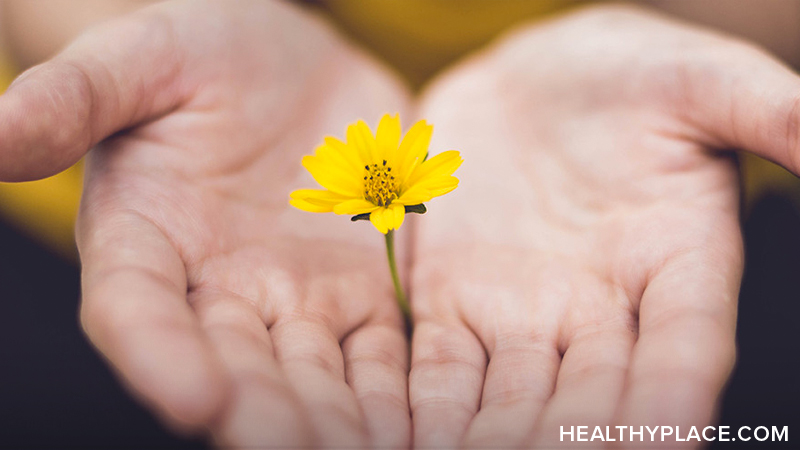What Helps Deal with Depression Triggers?

A depression trigger is anything that contributes to the development or deepening of depression. Triggers are highly individualized and vary from person to person. Whatever your own unique triggers, you can create a toolbox to help deal with depression triggers.
Types of Depression Triggers
There are different types of depression triggers, and knowing what they are in general can help you identify which ones are bothersome for you to help you target them. Common types of depression triggers include:
- Situations external to you—relationships with others, loss, disappointments, and more
- Your own thoughts—depression’s automatic negative thought patterns cloud how you see yourself, others, and circumstances
- Your physical self—nutrition, level of exercise, inflammation in the body, and more affect the brain and its chemistry, functioning, and structures
Effectively dealing with depression triggers involves either changing the situation around you or changing the way you experience it. Lifestyle adjustments help beat depression, too.
ACT to Deal with Depression Triggers
Acceptance and commitment therapy (ACT) is an approach to wellness that empowers people to make changes to improve their mental health and wellbeing. You can use the principles of ACT to deal with external circumstances as well as your own inner thoughts and experiences.
This brief rundown of the components of ACT can help you begin the process of dealing with what sets off depressive episodes.
- Accept what triggers depression to stop struggling against it, because when you fight it, that’s what you focus on. Different from giving into it, accepting its presence frees you to shift your attention and energy.
- Distance yourself from it by putting some space in your thoughts about it. For example, “I’ll never amount to anything,” becomes “My depression is telling me that I’ll never amount to anything, and depression isn’t trustworthy.”
- Practice mindfulness to pull yourself out of your thoughts about your trigger and into your present moment. Focus on your senses to ground yourself.
- Know yourself and your unique triggers. What bothers you, and what makes things better? The more aware you are, the better you can prevent becoming overwhelmed.
- Discover your values. Paying attention to what you want for yourself and your life is a way to take power away from what strengthens depression.
- Commit to pursuing your values. Triggers can’t keep you in depression when you are taking little steps every day to move away from them.
The little steps that move you toward positive mental health are what goes into your trigger toolbox.
Create Your Trigger Toolbox to Decrease Depression
Think of filling a giant box or other organizational items with tons of protective factors that will buffer you against triggers. You might not be able to prevent some triggers from rearing their ugly heads, but you can equip yourself to stand up to them.
Everything on the list has been shown by researchers and mental health professionals to help keep depression from overtaking you. Gather what resonates with you and bypass others. Also, plan on choosing just one or two items to begin defending yourself against triggers. Doing too many things at once can be overwhelming and counterproductive, especially when you’re facing depression, a condition that zaps energy and motivation.
Here are some things to add to your toolbox:
- Create a vision board or journal to record a positive goal, and look at it often for motivation and planning.
- List distractions—quick activities you can do to deflect negative thoughts about the trigger.
- Unleash your creativity and reduce stress through coloring, drawing, painting, journaling, knitting, building, sculpting with clay, taking pictures, etc.
- Get physical, as movement and exercise positively impact the brain and body and improve mood.
- Relax purposefully with deep breathing, meditation, aromatherapy, yoga, and others.
- Build a support network, which can start with just one person. Talk with a friend, coworker, or family member. Let them share their experiences with you, too.
- Eat well. Avoid processed, refined, junk, and fast foods; sugary sodas, energy drinks, and alcohol, and add complex carbohydrates, fruits, vegetables, and other healthy foods and drinks to boost your brain and make it easier for you to deal with depression triggers.
- Deal with problems in the moment rather than letting them fester and grow. Temporary discomfort is preferable to long-term misery.
- Hone optimism by reframing negative thoughts and looking past triggers.
- Keep a gratitude journal to broaden your awareness beyond depression.
- Allow yourself to experience awe. Step outside at night and gaze at the stars, study a beautiful flower, admire beautiful art. This allows you to rise above depression and adopt the healthy, realistic perspective that a depression trigger isn’t the only thing in your life.
Depression triggers can overtake you, but you don’t have to stay down. Use ACT and your trigger toolbox to move past them and out of depression’s reach.
APA Reference
Peterson, T.
(2022, January 4). What Helps Deal with Depression Triggers?, HealthyPlace. Retrieved
on 2026, January 13 from https://www.healthyplace.com/self-help/depression/what-helps-deal-with-depression-triggers



